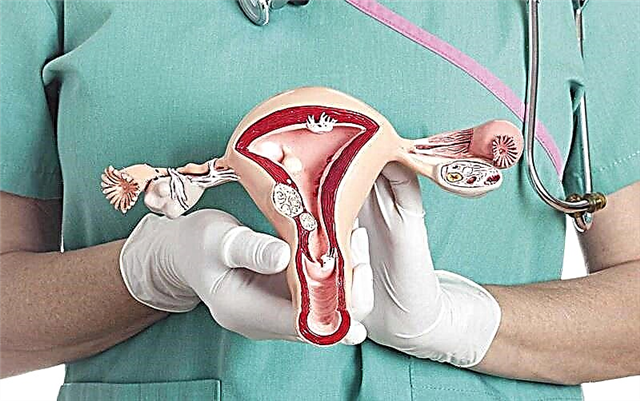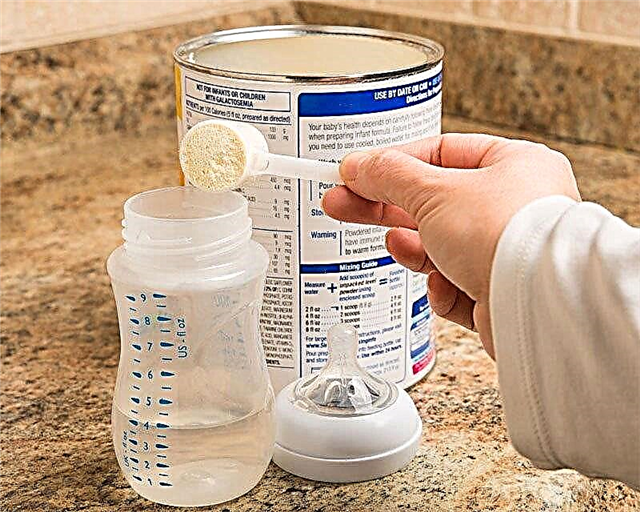Parents are often interested in how to rock a child so that he can fall asleep faster. However, sometimes it is necessary to quickly wake him up. This is important if the baby needs a timely meal due to some pathologies. Knowing how to wake up a newborn to feed is also necessary for those parents whose babies sleep more than normal.

How to wake up a baby for feeding
The benefits of a daily routine for a baby
During the first few months, the biorhythms are not adjusted in children. Up to three months of age, newborns cannot distinguish between day and night. Somewhat later, children develop a certain biological rhythm.
The duration of sleep in newborns is from 16 to 18 hours. Actually, sleep only lasts 2 to 4 hours. Then the babies wake up. Their crying speaks of the need for another feeding. The mother can help the child to distinguish between day and night. For example, during the day, while feeding, you need to talk to the baby. At night, it is recommended to feed your baby in silence, with a weak night light.
The regime is necessary for the child from the first days of his life, even during the period of being in the hospital. The time of falling asleep, the duration of sleep depends not only on the state of the body, but also on external conditions. The mode provides the age-appropriate number of feedings, determines the duration of wakefulness and rest.
Deep, long enough and optimally distributed throughout the day, sleep, well-established nutrition and wakefulness determine the correct physical development of the child. On the contrary, erratic daily routine, non-observance of the timing of feeding contribute to the development of diseases, weaken the child's body.
Important! The smaller the child, the more his well-being and health determines whether he is fed on time and whether he slept well.
Disruption of the sequence of sleep, wakefulness and feeding adversely affects the health of the baby. When he fell asleep on his mother's chest, then slept for an hour or an hour and a half, then the time of his wakefulness will precede feeding. The child screams instead of calmly knowing the world around him. A well-organized regimen encourages the baby to wake up before feeding and actively breastfeed.
Do I need to wake up a baby for feeding
If the baby wakes up less often than once every 3 hours, and at the same time gains weight according to the schedule, sucks well, urinates according to the age norm, then it is obvious that such a regime is individual for him. Otherwise, it is recommended to help the baby wake up 1 time at 3 o'clock in the afternoon and at least 2-3 times at night. This must be done until he independently begins to comply with the regime.

Baby sleep
Important! The doctor will tell you the optimal number of feeds, the duration of sleep and the frequency of waking up.
Is it worth breaking your night's sleep
Breaking the night's sleep for feeding will not harm your baby. It allows you to further teach the baby to fall asleep and sleep well.
Moreover, each child has an individual feeding and sleeping rhythm. Long breaks in food intake harm the baby. If the baby is hungry, he will certainly report this with a loud cry and cry.
After three months, the baby can go without feeding for longer. His night sleep will be longer. From the age of six months there is no need to feed your baby at night.
Do I need to wake up during the day
The baby must be awakened for feeding during the daytime. It is necessary to strictly adhere to the food intake regimen. It is impractical and impossible to feed the baby in a sleepy state.

Baby feeding
How to wake up your baby correctly
There are simple ways to wake up a newborn:
- It is best to do this during the active (rapid) phase of sleep. It is determined by the characteristic movement of the eyelids, lips, involuntary movement of the limbs.
- Some pediatricians recommend exposing the baby. This is usually enough to wake him up.
Important! If after that the baby continues to sleep, you need to hug him. So he will feel the closeness of his mother.
- The child may wake up from routine activities such as changing a diaper.
- During sleep, you can talk to your child or sing a song to him. This usually opens his eyes. Establishing eye contact will stimulate your baby to stay awake.
- Sometimes washing your face with a cool sponge helps you wake up. It should be exactly cool, not cold. Too cold water can cause colds.
- You can massage your baby's back, arms or legs. This will speed up circulation and increase blood flow to the head.
- Hold the child vertically.
- Place the newborn on a back on a firm surface (not on the bed).
- Gently twist the baby from the left side to the right;
- Run your finger over your lips with light movements.
Note! You should not turn on a bright light to wake up the baby. The eyes of newborns are very sensitive to it. So in too bright light, babies will reflexively keep their eyes closed.
If the baby falls asleep while eating
After waking up, the baby may be drowsy and even try to fall asleep again at the mother's breast.

The baby fell asleep while feeding
To support sucking activity, it is recommended to:
- support the chest with a hand so that it does not press on the face;
- squeeze your breasts so that more milk is released and it flows better;
- change breasts as soon as the baby starts to fall asleep;
- feeding "from under the arm" allows the baby to stay active longer;
- you should lightly stroke the crown of the baby's head while breastfeeding.
Important! Sometimes babies can take a nap while breastfeeding, especially if they are lying next to their mother. This is normal. If the baby is breastfeeding with closed eyes, do not disturb him.
If the child does not want to fall asleep
The main reasons why a baby does not want to sleep after a feed are:
- He has just woken up, has been awake for a short time, so he is not ready to sleep.
- The kid was overexcited due to excessively prolonged wakefulness or lack of a well-established daily routine.
- The child has a stomach ache. This happens, for example, with artificial feeding.
- The baby's nose is clogged and needs to be cleaned.
- The baby has not received enough milk. Because of this, he is hungry and cannot sleep.
- Uncomfortable conditions (too hot or cold), dirty diaper, wet bed.
If the baby does not want to fall asleep after feeding, it is necessary:
- create favorable conditions for sleep in the children's room;
- Help your baby meet his sucking need with a pacifier
- wear it in your hands, clean your nose;
- do not overexcite the baby;
- feed him on demand, do not wean him prematurely;
- rocking the baby.
The following signs indicate that the baby is ready to sleep:
- he yawns and starts rubbing his eyes;
- looking for mom;
- looking for a breast or a bottle of formula.

The kid wants to sleep
It's easy to wake up your baby to feed him. Sometimes he himself wakes up and announces that it is time to eat, with a loud cry and cry. Knowing how to wake up a newborn for feeding will help avoid problems with adherence to the daily regimen and the physical development of the baby.



